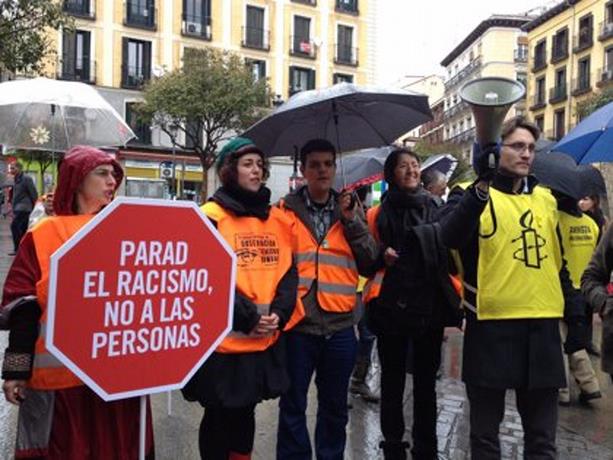When Adriana arrived in Peru, she did not know what the word "xenophobia". He was 9 years old and had left behind the crisis in his Venezuela native to start a new life with his parents, but the arrival in his new home, like that of many of his compatriots, was marked by a rejection of his origin that he now seeks to reverse.
"At my school, when I arrived from Venezuela in Peru, it was very difficult for me to adapt and I suffered from xenophobia. when I got here, more for my colleagues for seeing me differently, for not being a little empathetic with my situation. They just made fun"explains to Efe Adriana, who is 14 years old today.
His is one more story among the 6.1 million Venezuelans who have left their country in recent years, according to UN figures, and who have come looking for a better present. A great challenge that becomes relevant on days like this Monday, World Refugee Day.
In Peru alone, 1.3 million Peruvians have found their new home in a country where language, cultural and labor market similarities make them feel at home.
They, like many others, have provided their recipient countries with ideas and human capital, but they have faced, like Adriana – who hides her surname and the city where she lives for security reasons – episodes of rejection.
"I really enjoy the classes"
The young woman, despite that initial rejection she felt, confesses that she enjoys "too much of the classes" in a display of strength unusual for someone his age.
"Really, I enjoy the classes too much, although my classmates are still the same, I don’t pay so much attention to them anymore. Sometimes I try to tell them ‘hey, don’t say thatI can explain to you about this issue and why it is wrong’"he comments with a smile.
And it is that, despite her young age, she has begun to become an agent of change in her school, where she explains to classmates who want to listen to her what xenophobia is, the same word that she did not know when she arrived in Peru.
"The crisis does not really affect all people in the same way. The migratory crisis usually affects (more) those in whom certain characteristics intersectsuch as being a migrant, child or woman"details the national head of Human Mobility at the NGO Plan International Peru, Daniela Montesinos.
On the other hand -he continues- there are migrants and refugees "who have more precarious living conditions and unmet basic needs".
This reality, throughout the continent, "It has been much more aggravated by the pandemic, which has affected the migrant population much more".
Discriminated against and beaten by her teacher
Xenophobia was also raging against Wendy’s eldest daughter, who at only 9 years old, and recently arrived in Loja (Ecuador), had to endure that his new school life became a torment caused in this case by the classroom teacher.
"He beat her, insulted her and humiliated her for a month, and she said nothing. He was silent until he exploded. During this time his health deteriorated greatly. He had vomiting, a fever and we did not know what was happening to him"tells Efe Wendy, a mother of three children and a qualified teacher in Venezuela.
That traumatic episode is behind us, but overcoming it was not easy and required the support of Plan International for the girl to return to "open up, smile, talkbecause after that she didn’t want to talk so they wouldn’t know she was Venezuelan"specifies Wendy, a native of Táchira, and for three years living in Ecuador.
Now, her daughter is 11 years old and her brothers are 9 and 4. The youngest was one year old when they smuggled him out of Venezuela due to a law that prohibited children under 2 from leaving because they were "children of the country".
"I put him to bed in a car, put all the bags on him and walked across the bridge with my other two children."recalls Wendy, one of the nearly 514,000 Venezuelans in Ecuador, where she arrived after five days by bus.
Irregular, but own business
After working on "everything apt and honest"Three months ago, Wendy opened a multiservice company together with her husband, thanks to Plan International employability workshops that allowed them to materialize the idea, but there is still a pending issue: regularize their immigration status.
"I never thought about the fear of being illegal in a country and suddenly being told that we are being deported, after having fought for three years to stabilize ourselves. You live with that eternal fear", Wendy admits, pending the new regularization process announced by the Government of Ecuador with which it intends to give legal housing to 300,000 Venezuelans.
So that these episodes of discrimination are not repeated,The idea is to generate integration and cultural exchange projects and learning between the migrant population and the host population, points out the leader of Plan International Humanitarian Action in Ecuador, Raquel Gavilanes, so that "more inclusive and resilient communities".
